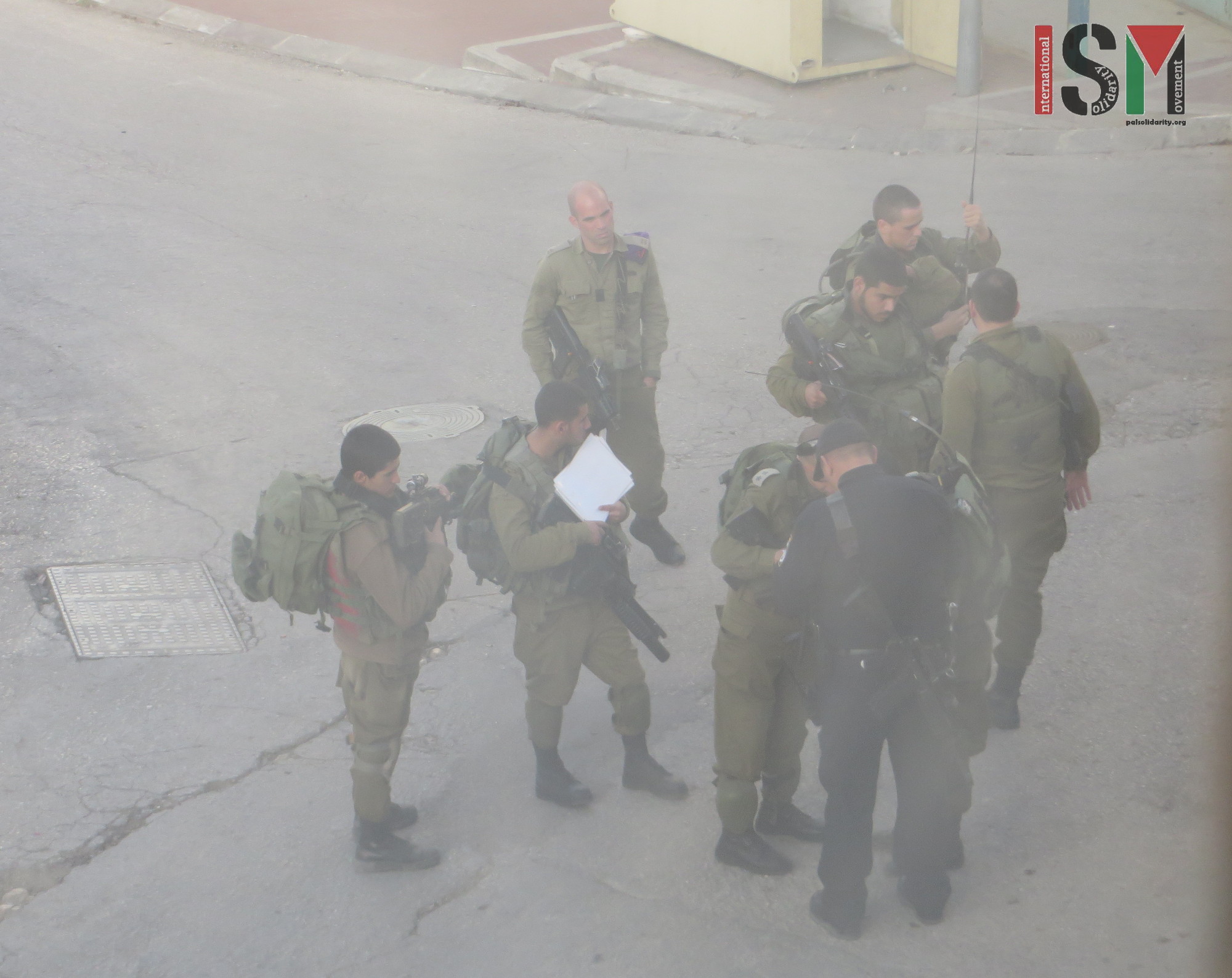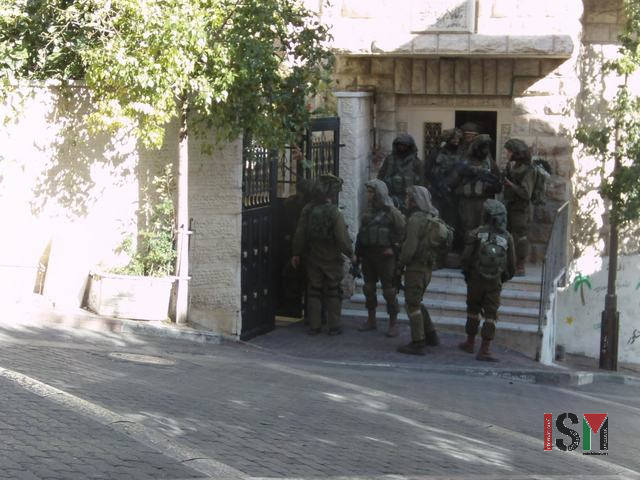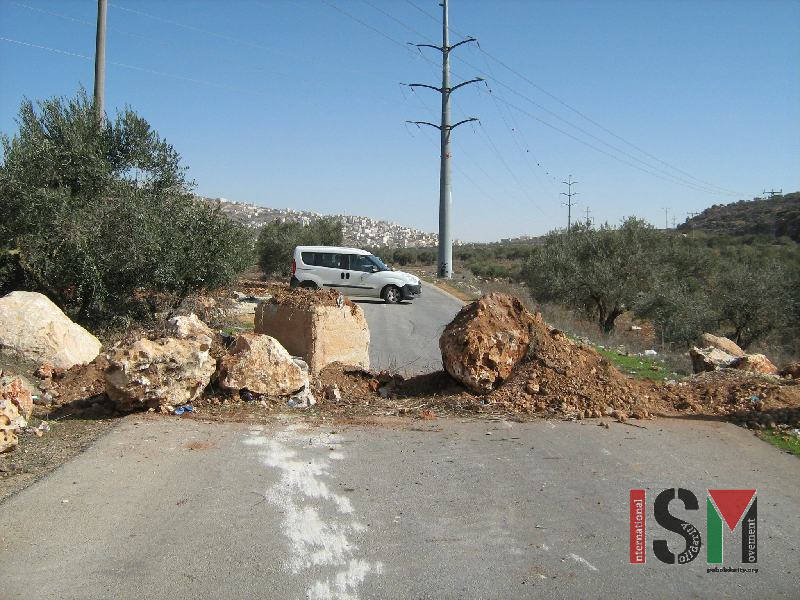-
Arbitrary arrest of two internationals in Hebron
26th November 2015 | International Solidarity Movement, al-Khalil team | Hebron, occupied Palestine Sunday 22nd November 2015, two international solidarity activists were arrested by Israeli forces on the allegation that they were ‘staying in a closed military zone’ in occupied al-Khalil (Hebron). One German human rights defender passed a checkpoint manned with a group of […]
-
Israeli army uses Palestinian neighborhood for military training exercises
25th November 2015 | International Solidarity Movement, al-Khalil Team | Hebron, occupied Palestine In Qaitun, a Palestinian Neighborhood of Hebron, situated in Oslo-defined Area H2, Israel has the authority for administrative and security control. Israeli administrative control results in Apartheid: Palestinians will never get permission for doing anything, as building, extending or repairing their houses, […]
-
Intimidating nightraids and arrests in the peaceful village of Osarin
22th november 2015 | International Solidarity Movement, Huwwara team | Osarin, occupied Palestine In the night of the 21st of november the village of Osarin was raided by Israeli forces. Approximately 60 Israeli soldiers entered the small village of only 2000 inhabitants at 1 AM and gathered in the central part of the village where […]
Action Alert An Nabi Saleh Apartheid Wall Arrests BDS Bethlehem Bil'in Cast Lead Demonstration Denial of Entry Ethnic Cleansing Farmers Gaza Global Actions Hebron House Demolition International law Israeli Army Jerusalem Live Ammunition Nablus Ni'lin Prisoner Ramallah Rubber-coated steel bullets Settlement Settlers Settler violence Tear-Gas Canister Video



